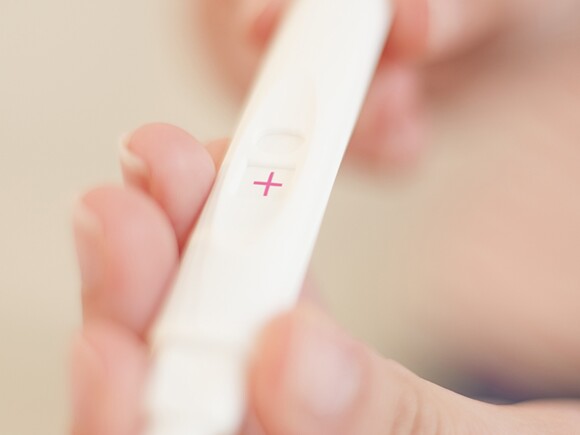The easiest way to test for pregnancy is through a home pregnancy test kit that is usually available at pharmacies. It is a simple device that detects the presence of the pregnancy hormone hCG in a woman’s urine. It’s quick, convenient, and around 97% accurate if used correctly. In just about 5 minutes, this pregnancy test can instantly recognize if you’re pregnant or not.
How do pregnancy tests work?
After a fertilized egg attaches to the wall of a pregnant woman's uterus, hormones called human chorionic gonadotropin – better known as hCG – are produced. This usually happens about 11 to 14 days after conception, or a day after the missed period. Pregnancy tests are designed to identify if urine contains hCG or not.
When to test for pregnancy?
Some pregnancy tests claim to be able to detect hCG as early as one day after a missed period, but waiting for a week after may give you a more accurate result.
How to use pregnancy tests?
The good news is, pregnancy tests are easy to use – easier than saying human chorionic gonadotropin! While they mostly work in a similar way, you should never skip reading the instructions on the package. Here are some of the usual steps each test requires:
- Hold the test stick where your urine streams.
- Collect urine in a cup and dip the test stick into it.
- Collect urine in a cup. Use a dropper to place an ample amount of urine into the test stick.
After 3-5 minutes, check the result of the test. Depending on the instructions, the result will indicate either positive or negative. Filled with anticipation and excitement, those 3-5 minutes could be the longest of your life!
Are pregnancy tests accurate?
Although most pregnancy tests claim to be 97% accurate, some may still give you a false outcome. You might consider retaking the test a week later to double-check the results. You may also take note of the following tips to strengthen pregnancy test accuracy:
- Closely follow the directions of the test.
- Take the test first thing in the morning when your urine is more concentrated.
- Don’t drink too much fluid before taking the test as it dilutes your hCG levels.
My test says I’m positive. What should I do next?
If you get a positive result, it’s best to see a healthcare professional immediately. This is the only way to find out if the result is accurate. During your appointment with the doctor, you will undergo some more tests to validate if you are indeed pregnant.
Once confirmed (congratulations!), your doctor may take more tests to check your health condition. You will also be given nutrition advice as well as dietary supplements for a healthy pregnancy.
Usually, doctor appointments are scheduled every 4-6 weeks until the 28th week of pregnancy, every 2 weeks until the 36th week, and weekly for the remaining duration of pregnancy. During these visits, your doctor will monitor you and you baby’s healthy growth and development, so make sure to bring up any concerns that you may encounter along the way. Write them in a handy notebook so you don’t forget!
Always remember: Each pregnancy test may be different, so be sure to follow the specific instructions written on the package.
Source:
http://www.starthealthy.nestle.com.au/antenatal-care-when-should-you-see-doctor












